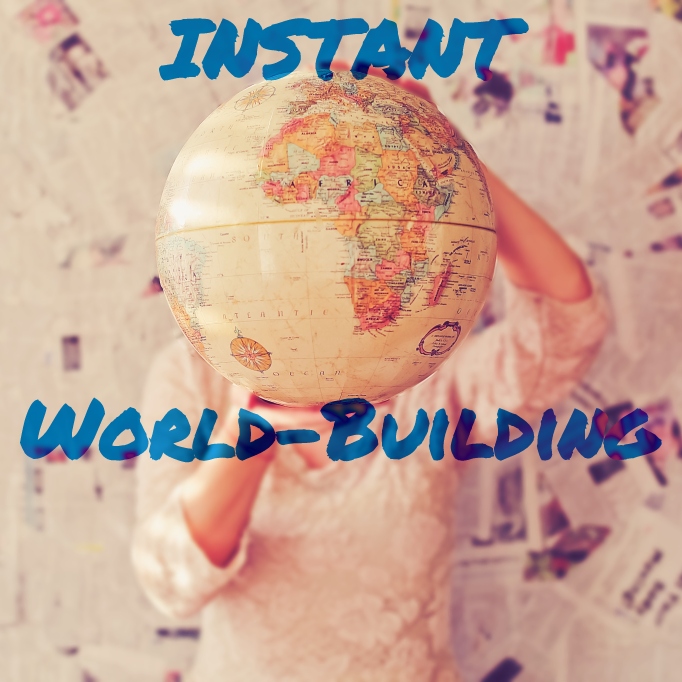by Kajsa Forden | Aug 18, 2018 | Characters, From the Author, Research, Worldbuilding, Writing Session
We’re not psychic, or very few of us are, and, if we were, we wouldn’t be focusing on that random woman’s baby name list while the world is ending in several natural disasters. We don’t know what futuristic names would actually be like and that means ‘futuristic’ name suggestions are either gibberish versions of current names or just no significant change in names, in most cases.
For near-future fiction, set in America for example, it makes sense for a good chunk of the population to have those gibberish names like Jessielle or Skyleigh because that’s a trend happening now, as is the extra respelling of original names (as in from Ashley to Ashleigh) or pop culture inspired names or even names with extra vowels and more obscure consonants (Xzavier or Ayla come to mind). Fiction set in the next 100 to 200 years should match some of the current baby name trends, especially for older characters, and then a reasonable extension of that for the generations they created. For fiction set way further ahead, it’s not a predictable kind of variable. But that doesn’t mean we should always expect the future to come with men named Liyam and women named Jexa.
Of course, this all depends on how ‘realistic’ your fiction is. If you’re set in some fantasyland far far away, where current real-life names don’t even matter then that’s all a moot point. There are, however, rationalities to be considered. While tossing out a bunch of scrabble pieces and writing down whatever comes up may seem like a thoroughly original thought (it’s not), it will produce more gibberish and less character.

For Pity’s Sake, Consider Your Reader
Xionamus Azander may look bomb on your computer as you type but who the heck is gonna want to try to pronounce that? Out loud? Multiple times? In excited discussion? Remember that ‘Hermione’ was enough to baffle many readers when Harry Potter first came out. If you’re going the extreme Scrabble points route, take pity on the readers and give the dope a nickname at the very least. Xionamus can become Xion – because I’m sure even his parents would get very tired of saying ‘Xionamus.’
Consider the Consistency
You probably shouldn’t name the male character Xionamus Azander and surround him with a red shirt named Smith, a love interest named Amy, and a dog named Spot (bonus suck-points for just foreign language names like Juan the red shirt, Aika the girlfriend, and a dog named Tache). There needs to be consistency. Not all the same kind of names – like not all variations of Xion or Azander – but similar enough to be reasonable in your setting: Xionamus Azander, with Melba Kase, Tray the red shirt, and Dax the dog. Melba Kase may not be as extra as Xionamus but they sound like people more likely to find each other in the same room than Xionamus and Amy do. However, a woman named Amy could fit in a different kind of future, with people named something like Fry and Hermes.
Don’t Get Caught in the Void
Remember that your characters are people, not walking spelling disasters. Don’t get caught up in extravagant ridiculous names and forget to build & explore the actual character. Xionamus Azander sounds great but it’s just a name unless you remember to write him. Whether he’s a space captain with a love of hot dogs and a fear of insects or a kid who dreams of exploring the ocean and hates sweaters, Xion is a person you’re writing about and should be treated as such. They’re not just little pawns with gibberish names who just have something happen to them and then it’s fixed and then it’s all good and Xion has saved the day (even though it was probably really Melba). So don’t write them that way. Otherwise, this story is really going to suck.
by Kajsa Forden | Jul 25, 2018 | Research, Try Something New, Worldbuilding
‘Instant world-building’ isn’t quite as thrifty as it sounds – it doesn’t involve rolling dice or scrambling names for towns – because it’s based on the simple idea of stream of consciousness.

As writers, we easily get bogged down in researching time periods or naming ships or deciding if Town A hates Town B and if it’s really Town C’s fault, but often we can be saved by something many of us loathe during the writing time: socializing. Instead of spending hours deciding if Town C is named This and Town B is named ThisThat, use rapid fire questioning to make the executive decision, with confidence as you’re with a potential reader. Bringing in another person and attempting to explain your work is a terrifying notion but, unfortunately, extremely helpful, and instant world-building buds from this.
When you talk with another person and explain to them about your work, it forces you to put your work in a perspective understandable to someone who doesn’t live in it with you. They don’t know all that backstory and detail and random information rolling around in your head. But, sometimes, neither do you, once you get past government and religion and climate and bigger things like that.
‘Instant World-building’ uses your creativity without your inner questioning editor, because it depends on you creating details quickly and confidently. When your person asks, “What type of trees are predominant in this forest?”, you answer without hesitation, “Eucalyptus,” without hemming and hawing over if it’s biologically possible in that forest along the coast anyway because that’s something your inner editor can handle later.
The point is to answer as many random questions as possible, and take notes, to create your world ‘instantly.’ Your creative mind, your imagination, is doing the work for you. And then all that is left is auditing a bit later on – making sure you don’t have goldfish dominating a salt water lake or 19th century thinking in a 17th century town or palm trees by your northward town experiencing a blizzard, unless you have good back-end explanations for the break from our reality’s science (or history, etc).
Instant world-building makes the process fun and less pressured. You can sit for long sessions pulling out random details you’d never even think of, just because someone else’s mind is thinking of it. Invite a friend over, order a pizza, have some wine, maybe record the conversation so you don’t have to worry your memory, and get that world expanded!
A quick compilation of questions to get the session going:
Which are the fishing towns? The cold towns? The tropical?
What are the common illnesses?
Which fish are eaten most?
What’s the fancy cuisine like?
What are some more expensive purchases?
Which place exports this and imports that?
What are the main crops? Which crops grow where? Do some towns have crop monopolies?
Which animals are often hunted? Which are protected?
Is marriage secular, legal, religious? Who can marry whom? Is there an age barrier?
What are the community events like? How is community represented?
Do most people go to school? For how long? Is school meant more for certain people rather than others?
How ‘woke’ are the people? Are most people ignorant of current events, or is there a working news system?
What is poverty? Are there homeless? How is poverty and homelessness handled?
What is the majority species/race? Who are the minorities?
by Kajsa Forden | Oct 17, 2017 | From the Author, Get Motivated, Try Something New, Writing Session
I have never been one for diaries or journals, despite the near-constant narration my mind supplies throughout my daily life. Whether I’m making a mental checklist, writing out a vignette from my day, or putting together little blurbs inspired by people, words, and scenes I witness in everyday life, words are my consistent companion.
I may not keep a diary, but you can bet I have a generous stock of notebooks. And I will probably buy more soon. Sometimes my train of thought switches track too quickly for a pencil; notebooks are my sidekick while I travel or while I’m drafting or while I’m writing lists. Even if your main writing medium is technological, as mine is, notebooks can serve as a fine outlet to scribble the mess of thoughts your mind keeps creating. Then you can digitize those scribbles as you decipher them.
There’s little doubt that we wordsmiths need a brain outlet, especially when between projects or struggling to start a new one. Here will be an amalgamation of writerly brain food – research, prompts, writing, creating, editing, little procrastinations, and many other creative stimuli. Most of all, My Storytelling Mind will be a writer’s resource, meant to both motivate and listen. Use the site purely for inspiration or information, or get involved in the conversation. Either way, MSM is here to support your creativity, your writing, and your imagination.
Stay tuned for daily prompts, world-building tips, inspirational posts, various research topics, and tricks to perfect your writing process.
Welcome to My Storytelling Mind!
by Kajsa Forden | Apr 21, 2016 | From the Author
Procrastination plagues even the best of us. Sometimes everything that needs to be done in a day looks overwhelming and the urge to just not can win the day instead. But, hark! There is a solution: lists.
Aside from obvious reasons for owning notebooks as a writer, one of the main reasons I own so many notepads is to make lists, breaking down Mount Overwhelming into tiny rocks of I-Can-Do-That ore.
For example – Today:
- Feed self
- Clean room
- Reading Challenge
- Schoolwork
- Upcoming blog posts
- Daily writing stretch
- Early to bed
That’s a basic example, but it reduces the pressure of a busy day, especially when you also have writing bouncing around the back of your mind as well. The process works just as well for any writing project, from an overall outline kind of list to a list of character likes and dislikes.
Still a university student, I usually don’t have classes on Fridays, making them available for household tasks and for creative influx. Keeping all my tasks listed out means less time being stressed and more time being creative.
Whether you make your lists on notepaper, sticky notes, an app, or Excel spreadsheets, lists are a highly recommended part of organizing writing, work, and a busy mind.
by Kajsa Forden | Apr 20, 2016 | From the Author, Get Motivated, Try Something New
Many writers feel that sense of shyness around their writing, hesitant to share their work with the outside world. Pinterest forced my words into the open and helped to establish a disconnect; my writing isn’t my baby to shield from the world, it’s a form of art that should be shared. Whether or not my writing is high or low art is a subject for debate, but letting it be free turned out to be much more satisfying than I expected.
I started posting blurbs and prompts on Pinterest over a year ago, and the collection has grown consistently. The prompts will double-post on here; the site will start at #1, while the Pinterest continues from the most recent number. When a blurb or prompt grows into a story idea, likely to keep developing, the idea gets its own storyboard. These storyboards do not encompass all my work, but are a visual addendum.
Daily Writing Blurb: Prompt #1
Linked above is the very first prompt written and featured on my Pinterest, inspired by the photograph used. Most of the prompts written are inspired by or based on images that I did not create myself. Instead, I start from that visual inspiration and develop it into a written blurb, something anyone can use to further create their own story. Like a virtual plot bunny jar, you can pick a random number between #1 and the most recent number (currently #658) to find a workable prompt, for nearly any possible genre.
Check out Bits & Baubles; Bits & Baubles, Part 2; and Writer, for writing tips and motivation!


